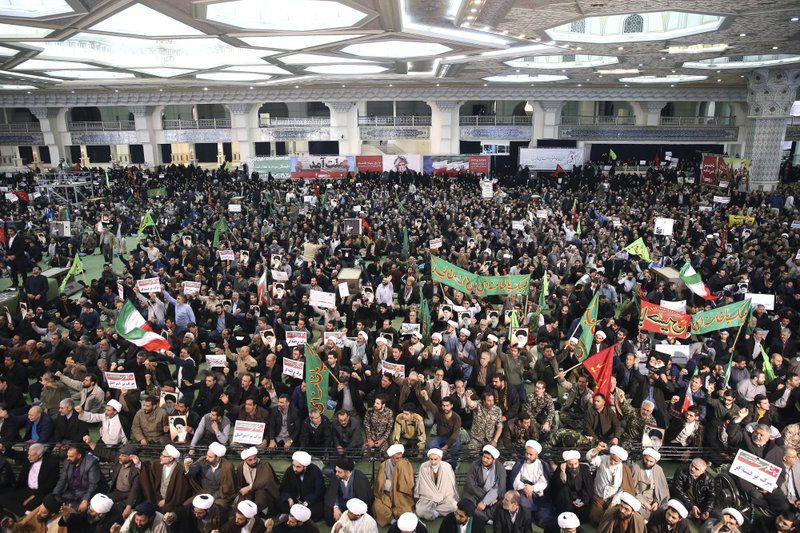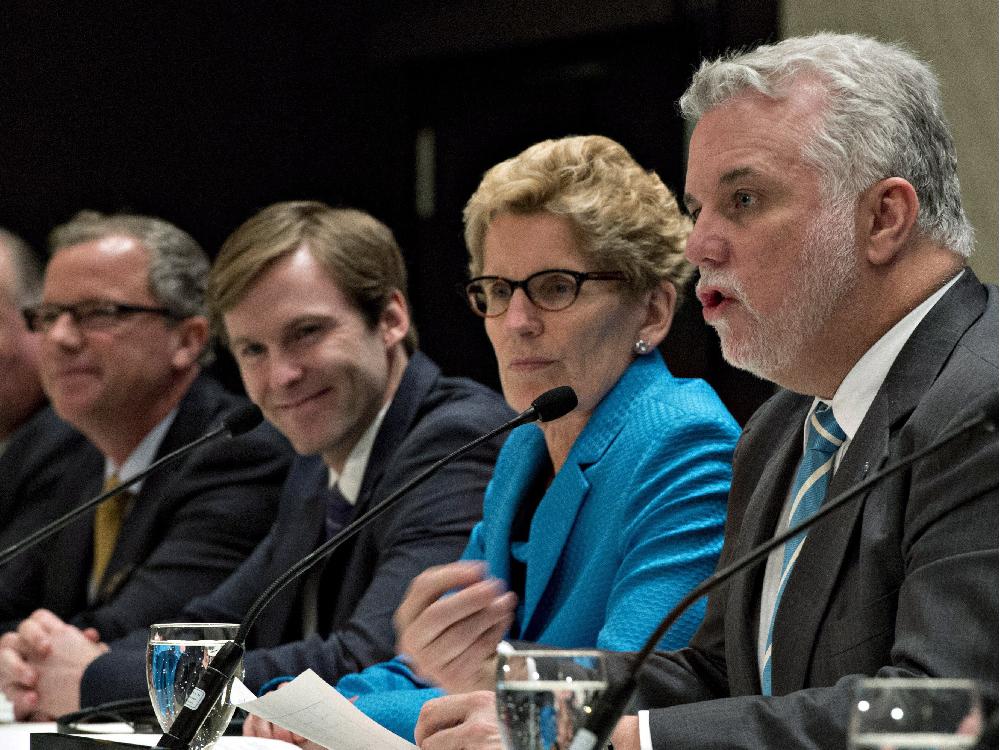In the wake of news of protests breaking out across Iran, a bevy of Canadian politicians were quick to take to Twitter to broadcast their support, and in the very next breath, demand that the prime minister issue a bold statement of support for the protesters and denunciation of the current regime. After all, loud proclamations about Iran have been a staple of political fodder of this country for at least the past decade, so why not try to keep it up and make bellicose statements about the odiousness of its theocratic government, or to look like you're on the right side of history when it comes to egging on the protest movement.
Trudeau, however, did not, and while the department of foreign affairs initially issued a cautious statement about monitoring the situation, Chrystia Freeland issued her own cautious statement once news of the crackdowns started to reach the media.
Canada is deeply troubled by the recent deaths and detentions of protesters in Iran. The Iranian people have the right to freely assemble and express themselves without facing violence or imprisonment. As we said last week, Canada is encouraged to see the Iranian people who are bravely exercising their basic right to protest peacefully. We call on the Iranian authorities to uphold and respect democratic and human rights, which are too often ignored. We remain concerned for the well-being of protesters and will continue to closely monitor the protests.
The language is careful and diplomatic, and decidedly not bellicose toward the regime. And that's probably a smart thing, because doing so as US President Donald Trump has been is likely to do more harm than good.
University of Waterloo professor Bessma Momani told CTV's Power Play that the Canadian government's caution is the smart thing to do, despite our instincts to want them to say more.
"If Western governments come out too much in favour of blatant regime change calls, then it feeds into the hands of the regime, who will say these are Western elements, these are western inspired stooges of, you name it, CIA or other intelligence sources, and then the crackdown will be far, far worse," Momani said.
There is a need to be cautious and careful, because the unintended consequence of being more vocal, as Trudeau's critics are demanding, could be further repression for the very Iranians that they claim to be supporting.
Another problem with the current brigade of Twitter warriors declaring their support is that it's often not really about Iran, but rather about their own agendas. One example is how anti-feminists in the North American political sphere use the fact that some of the women protesters have been seen removing their hijabs to call out western feminists for not manning the barricades with them, as though the protests were solely about that. Much the same as many on the political right in Canada and the US insist that these protests are about regime change and freedom, when the news from the ground what news we can get, with very little media that has access portrays a different tale.
What we can determine is that these protests are different than those in the Green Revolution in 2009 because they don't follow a rigged election, and they are coming more from the working class across the country than they are the middle class in Tehran. Much of it seems to be focused on corruption by the clerics and other associated economic grievances, including funding wars in neighbouring countries while the country's economic growth isn't trickling down to those workers (due to the aforementioned corruption and graft). One thing that surprised and baffled some American observers was a call for a restoration of the monarchy (never mind the fact that constitutional monarchies are far more stable and progressive governments than the kinds of republics that Americans favour and tend to institute in countries whose regimes they have toppled).
And this is partly why there is a lot of caution in the Canadian response because we don't really know what is happening on the ground as we have no embassy or diplomatic presence in the country after the previous Conservative government cut off relations in 2012. If we have no reliable, verifiable information, it's hard to gauge what is an appropriate response to the situation that won't make things worse, and it's no doubt one of the reasons why the current government is trying to re-establish that diplomatic presence so that they can get a better sense of what is going on.
But the actual work of statecraft and diplomacy isn't a convenient narrative for some of those same voices that we're hearing from right now. After a decade of foreign policy by bullhorn and virtue signalling for a domestic audience, it's no doubt difficult for them to get their heads around the fact that diplomacy is not some kind of reward when dealing with countries like Iran.
"The institution of diplomacy is to manage relations with countries you have difficult relations and disagree with, it's not a bonus prize," Carleton University professor Stephanie Carvin admonished to Conservative partisans over Twitter in their attempts to Twitter-shame Trudeau for not repeating their calls to denounce the Iranian regime. Shuttering the embassy was throwing away our diplomatic tools for the sake of short-term posturing, again, for the benefit of a domestic audience.
Iran is a difficult file to manage, and a decade of using that bullhorn seems to have dulled the instincts for the fact that there is a lot of nuance in diplomacy. It's not just about making bold statements over Twitter at regimes you don't like, or shaking your fist at the sky when your audience is watching. I will say that this government has seemed to have grasped that sometimes you need to keep quiet and do the work behind the scenes, such as how they handled the relocation of several GLBT people from Chechnya who were in danger of imprisonment or death rather than talking loudly about their plans, which would have hampered the efforts of getting those nationals out of the country and to safety, they did the work quietly and effectively. Sometimes being the loudest voice isn't always the most effective, and simply demanding posturing by the government isn't a realistic engagement strategy.
Photo Credit: Business Insider








